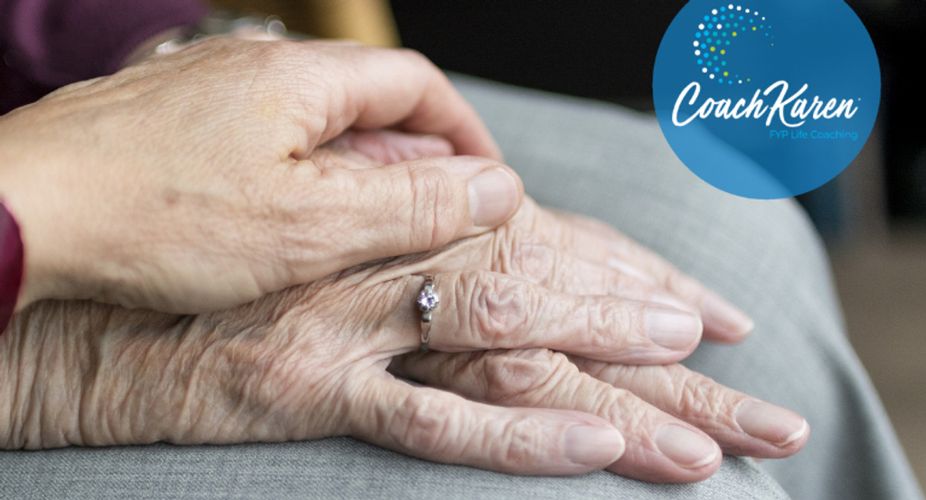"A single act of kindness throws out roots in all directions, and the roots spring up and make new trees.”
~ Amelia Earhart
There is tons of research out there showing that when we are kind to others, it adds to our happiness. Being kind activates an area of the brain called the striatum. This is the area of the brain that gets all gushy when we are nice to others. Our “warm glow” after we’ve genuinely helped someone isn’t smugness or self-importance. It’s an actual biological response to our kindness.
Beyond brain chemistry and neuroscience, psychology has long been interested in the link between kindness and well-being. In fact, the very act of thinking back on our kind actions may be enough to lift our mood, and research has show that when we spend our extra money on others rather than ourselves, it may have a greater impact on our own happiness.
When my kids were growing up, we used to have “Random Acts of Love-ness.” This was when a family when come up to another family member and kissed them, hugged them or just said, “I love you.” We still do it today. For my grown children, it’s usually a random text message. Even a quick text means so much since I know they are all so busy, but they are thinking of me. I still have teenage son still living at home. He still drops a random “I love you, Mom” aided by a hug or kiss, and it means so much.
The Science Behind Kindess
But why and how does kindness make us so happy? There are numerous mechanisms involved, but here are a few of them. Keep in mind, how powerful they are in making us feel good may depend on our personalities.
1. Contagious smiling
Kindness often elicits good feelings and smiles. Like a yawn, seeing a smile might be catchy. Neuroscience suggests that the parts of our brain that register specific emotions are triggered when we witness others’ emotional responses. Think of their smile as an empathy jolt, one that elicits a smile of your own.
Try it out! Smile at a stranger today and see what happens.
2. Helping Others in Need
The same empathy mechanism works with negative emotions. Typically, the closer we are to others, the more intense our reaction. Our close friends and family are so ingrained in our minds, our representations of them are enmeshed with our perceptions of ourselves.
When we make somebody feel better, we offer relief not to just their suffering, but our own as well. We share their relief in making something right.
It doesn’t stop there, when we engage in solving humanity’s problems, we are positioning ourselves to have a positive impact in the world. Addressing homelessness or climate change in a direct and giving way, can also improve our mood.
I distinctly recall a morning I was working at a local university. I was given a box lunch for the event, but really hadn’t felt hungry enough to eat it. On my way back to my car, I met a homeless woman on the corner. I handed the box lunch to her. She followed me for another block thanking me profusely for the meal. It was a simple act that cost me nothing and meant the world to her. That was nearly three decades ago, yet it is etched in my memory not because of what I did for her, but the feeling she gave to me in return.
3. Making Connections
It is nearly impossible to be kind without having some sort of connection. Whether, you're with a friend or a stranger, just interacting with someone to help them, improves both of your moods.
You can even increase your connection indirectly. If you give to a charity that benefits someone thousands of miles away from you, you are still improving their life. When you volunteer, you give your time and energy to help, but you also open new circles of connection with the other volunteers. In both instances you get the satisfaction knowing you're making a difference.
When my youngest son was two years old, we were visiting a fast food restaurant when my son caught the eye of an elderly man sitting in the corner who looked sad. Before I could react, my son went over to play with him. He touched the man on the knee as if he was going to play tag and gave him a big smile. Who knows what prompted my son to reach out to this man. The precious thing was to watch the two of them, without words, interact with each other. The whole two minutes concluded with my son reaching up to give the old man a big hug. It brought tears to my eyes at the time, and it did to this old man too. I have no idea what was going on in this man’s world, but his body language indicated a whole new light and happiness after just this two-minute, word-free exchange of a touch, a smile, and a hug.
4. Kindness comes back around
Psychologists have also proposed that reciprocity, the returning of the favor, can be a motivating factor in extending kindness. If you’ve helped somebody out when they need it, directly or indirectly, they’re more likely to help you when you need it.
Also, if kindness elicits a shared happiness and a desire to return the favor, then everyone’s spirits are lifted. Everyone becomes kinder.
I admit that I am not good at asking for or receiving help. I’m a giver. However, I have been blessed with a number of friends who have given back to me in times of need reminding me how I have given to them.
In the last year, I have had a dear friend of mine offer to get my groceries during her regular Tuesday grocery days. When she first offered, I refused. Knowing I needed help, due to it being a hectic and busy time in my life, she “threatened” me by saying she’d buy he what she thinks I’d like if I didn’t give her a list.
This little act of giving over the last year has saved me in many ways, especially during this pressing time. I’ve found myself trying to take care of everyone else, not realizing that the refrigerator had gone bare. (Note: Never let a refrigerator go bare when you have a teenage boy at home!) When I asked her why she chose to reach out to me, she said it was because I helped her 20 years ago when she was going through her divorce, and she wanted to “return the favor.”
Just last week, another dear friend of mine noticed me post something on Facebook where I briefly mentioned I was sick. She texted and called me the next day, then immediately brought me soup, medicine, and flowers to cheer me up. It truly made my day!
Being kind to others does come back to you. And, if you are anything like me, sometimes we need to learn to accept it from others.
A List of Kindnesses
If you are looking for random acts of kindness, there are lots of ideas on the internet. Here are a few to get you started:
- The first one is called Email Roulette. Write an email to someone random in your contact list about how they’ve influenced your life, inspired you or displayed a characteristic you respect. Use real examples and mean what you say. Don’t be afraid to include some emotion.
- While you’re at the grocery store, help an elderly person who’s struggling with their groceries.
- Take a moment to compliment someone. If you’re hanging out with someone, find one thing about them you truly admire and share it.
- If someone is a little down, inspire them. It costs nothing but a few seconds time to offer a silver lining or a compliment.
- Make someone laugh. Tell a joke. Share a funny video. Or even poke fun at yourself. Give somebody a reason to laugh.
- Let someone in when you’re driving.
- Buy coffee for the person behind you in the Starbucks line.
- Cut out 50–100 paper hearts or smiley faces and put them in a box. On each cutout write something that is special about your lover or a good friend. Give her the box and tell her to pull out a heart or smiley face anytime she gets lonely or wants a pick-me-up.
Random acts of kindness are about showing yourself what you can do when you go beyond just you and your own selfish desires.
Does it mean you need to do it every day? Nope. If you need an excuse, you can just do it in honor of Be an Angel Day (August 22nd) or on Just Because Day (August 27th). Try it out. If you like the way it makes you and others feel, then do it on random days when no one else is expecting it. You just might make it a habit!
There will be days when you’re kinder than others. The trick is to try them as regularly as you can. After a while, you’ll find yourself being kind without even thinking about it. The habit of implementing random acts of kindness into your day can make you see the bright side of life.
If you are not careful, it just might make you a happier person!




















